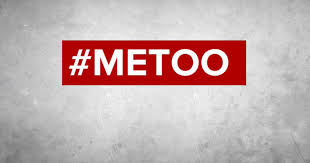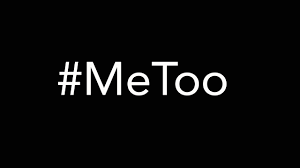
When convicted sexual abuser Larry Nasser used the quotation, “Hell hath no fury like a woman scorned” in reference to his victims, there was widespread incredulity and revulsion. Nasser’s implication that somehow young gymnasts were complicit in his manipulative and abusive behavior was horrifying – but nothing new.
For centuries and in cultures the world over, women have often been blamed for their own victimization at the hands of men. At the extreme are the traditions of many African and Middle Eastern cultures, wherein if a woman or girl is raped, the only way she and her family can avoid shame is to have her marry her rapist. Victims of human trafficking are likewise deemed damaged goods and whores regardless of the fact that they gave no consent to the sexual abuse.
As women come forward with their stories of sexual harassment, molestation and outright rape by political figures, college athletes, media figures, and Hollywood moguls, it seems hard to believe that there are so many predatory men in the world. And yet our culture permits and even condones such behavior.
One of the problems is simply that young girls and women are not believed. As far back as 1990, Nasser’s victims had complained to school officials at Michigan State University about his inappropriate touching. Administrators simply could not believe that a man of Dr. Nasser’s stature could perpetrate such acts. Disbelieving victims goes a long way toward enabling predators to continue their despicable behavior. When the perpetrator of the violence is a person of standing in the community, that standing takes precedence over the safety of the victims. One need look no further than the massive sexual abuse that took place for decades in the Catholic Church to see how difficult it is for victims to come forward and be believed.
The other problem in our culture is perpetuating the myth that men are natural sexual predators, and women are their prey. Long before the Harvey Weinstein revelations, casting couch sexual shenanigans was a common trope. It was widely believed that starlets and young women in many occupations used their sexuality in order to get ahead. Instead of maligning the men who used their power to intimidate and coerce these women, cultural scorn was heaped on the women themselves. This tendency to blame the victim explains why so many women went for years without disclosing the terrible things that had happened to them at the hands of men like Weinstein.
As proof of my point, there is already a backlash developing against the #MeToo movement. Men (and no doubt some women as well) are complaining that demanding a greater accounting of their sexual behavior is a buzz kill in the bedroom. Many point to the story of Aziz Ansari and his unsavory but not necessarily criminal behavior with women he dated as an example that the #MeToo movement has gone too far. After all, Ansari is considered a “nice guy.” How could such a nice guy be held culpable for disrespecting women?
But that is precisely the point. If the “nice” ones cause that much discomfort in a romantic encounter, imagine how scary the truly predatory and sociopathic ones are. We need a sea change in our attitudes about men, women, and sexuality. Clearly, the sexual revolution has done nothing to erase outdated stereotypes.
But there is hope. Women and men who are victims of sexual abuse are demanding an accounting. They are speaking out and expecting to be heard and believed. Certainly compared to a few decades ago, awareness of sexual harassment and appropriate workplace behavior has made many employment situations better for both men and women. Even Disney reconfigured their Pirates of the Caribbean ride to get rid of the pirate chasing a “wench” around and around, ostensibly to catch and rape her.
Laws are important, and law enforcement needs to improve to recognize and prosecute sexual misconduct. Similarly, organizations such as schools and universities need to recognize the problem and prioritize human rights over reputation. But the real change will come when we start to believe sex should be a mutually desirable and consensual act and not a conquest.
